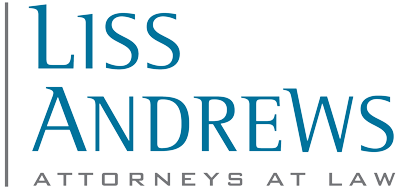Michigan’s No-Fault law for auto accidents is notoriously complex, which makes it challenging for victims and their families to get clear information on how it works and what benefits they may be entitled to under the law. We know that victims need experienced and effective advocates and have developed the following list of No-Fault frequently asked questions to help.
Michigan’s unique No-Fault auto insurance law is designed to be fair and reasonably affordable for motorists, while allowing for the prompt payment of insurance benefits in the event of an auto crash—regardless of who is at fault. Michigan’s law is the most comprehensive auto insurance package of its kind in the nation.
A No-Fault first party claim is typically filed against an injured person’s own insurance company and encompasses claims collectively known as Personal Protection Insurance.
You must notify the proper insurance company promptly and within the period of time required under the terms of the policy. Read the policy closely—different types of claims have different reporting requirements.
An insurance company may require written notice to be given as soon as practicable after an accident involving a motor vehicle when making a claim for Personal Injury Protection benefits.
You must file a lawsuit within one year of the claimed expense having been incurred (once written notice has been given or a payment has been made). You typically cannot recover benefits for any expenses that were incurred more than one year before the lawsuit was filed.
If the insurance company is provided reasonable proof of loss within 30 days of an incurred expense, then insurance company has 30 days to pay. If the insurance company is provided reasonable proof of loss more than 30 days after an incurred expense the insurance company has 90 days to pay. The insurance company will often claim that it is “investigating” as an excuse for delaying benefits.
Yes. It is critical to notify the insurance company in the proper method and timeframe in order to preserve your rights. As with all dealings with an insurance company, you or your representative must be very careful how you notify the company and what information you provide.
Michigan requires that motor vehicle owners purchase No-Fault insurance coverage but the owner decides the amount.
Attendant care insurance benefits are a critical part of the “allowable expenses” under No-Fault law. Services provided for an injured person’s care, recovery, and rehabilitation in the home are recognized as Attendant Care. The law recognizes that family members can be paid for providing these services in the home environment and that the services are provided at their reasonable market value. Attendant care benefits can make the difference between a victim receiving at-home care or being placed in an institution.
Yes. Different benefits have different limits and under the new amendments to the law, coverage for allowable expenses may be significantly limited depending on the insurance policy that applies to your motor vehicle collision.
Allowable expenses (typically medical bills, attendant care services, home and vehicle modification expenses) have different limits depending upon the applicable insurance policy. The law now allows motorists to purchase coverage with the following limits: $50,000, $250,000, $500,000, and “no-limit” policies. Knowing which insurance policy applies to your No-Fault claim is critical and can be confusing. If no insurance policy applies, you may be limited to a $250,000 cap imposed for certain claims assigned to the Michigan Assigned Claims Facility.
Work loss is limited to 36 months. There are also monthly dollar limitations that change every year and are published by the Commissioner of Insurance.
Replacement Services are also limited to 36 months and a maximum of $20 per day.
Third-Party Damages are a tort claim against the negligent party who is at fault for the accident (although the driver or owner of the motor vehicle at fault is partially immune from certain damages under the no-fault insurance system). Third-party benefits are often for losses related to pain, suffering and mental anguish. Third-party claims can include “excess economic loss” such as work loss not covered by Auto No-Fault and medical expenses not covered by Auto No-Fault because the policy applicable to the automobile crash.
While Michigan has some of the most comprehensive coverage in the nation, insurance companies doing business in Michigan had been using non-driving factors like credit scoring, education, marital status, and zip codes to improperly inflate the cost of insurance. The use of non-driving factors has caused insurance premiums to steadily increase over the years. Recent amendments to No-Fault attempted to fix the problem of high premium costs but instead of focusing on the cause of the problem – insurance company profits – the Michigan Legislature decreased insurance coverage. Whether motorists see actual savings remains to be seen.

